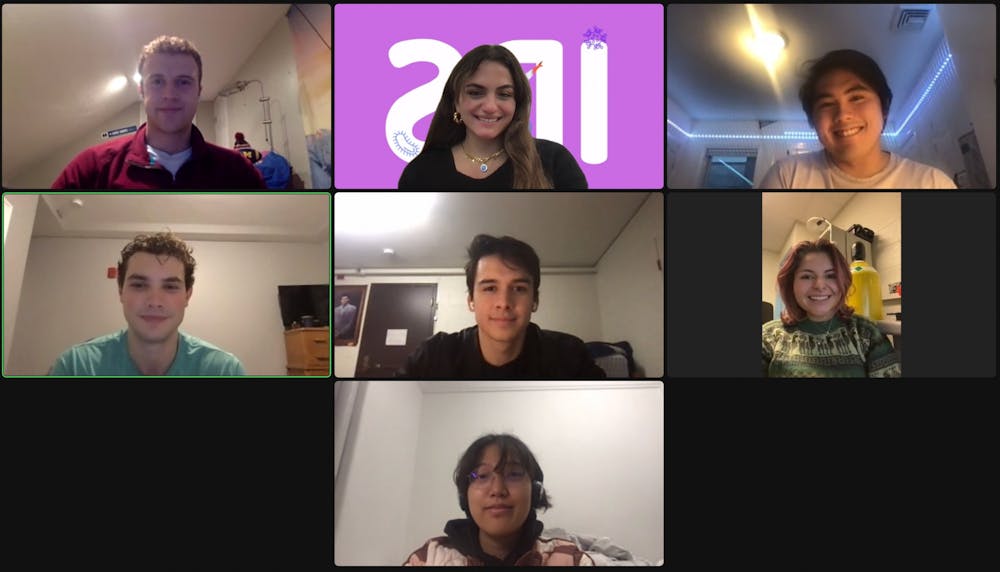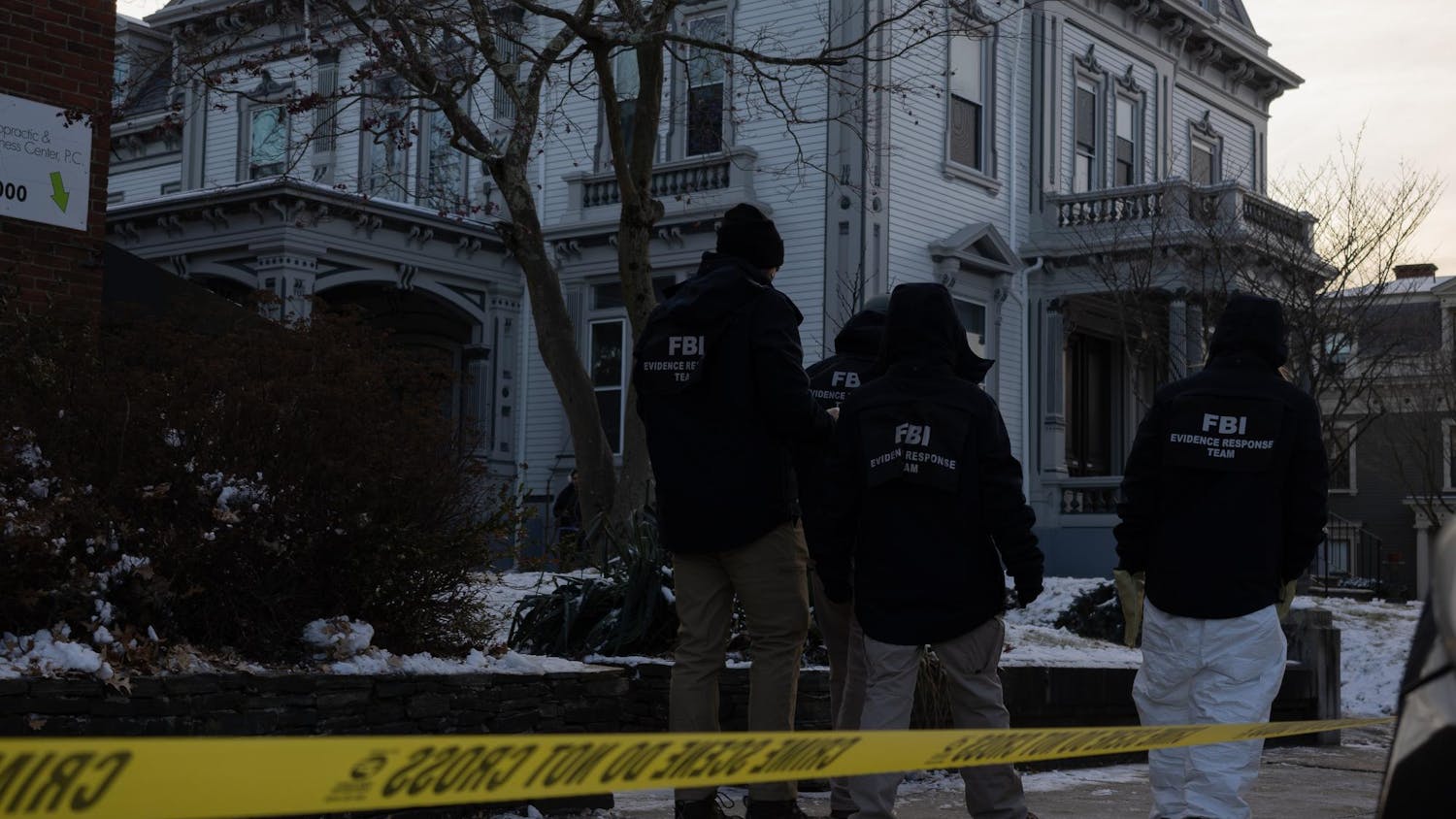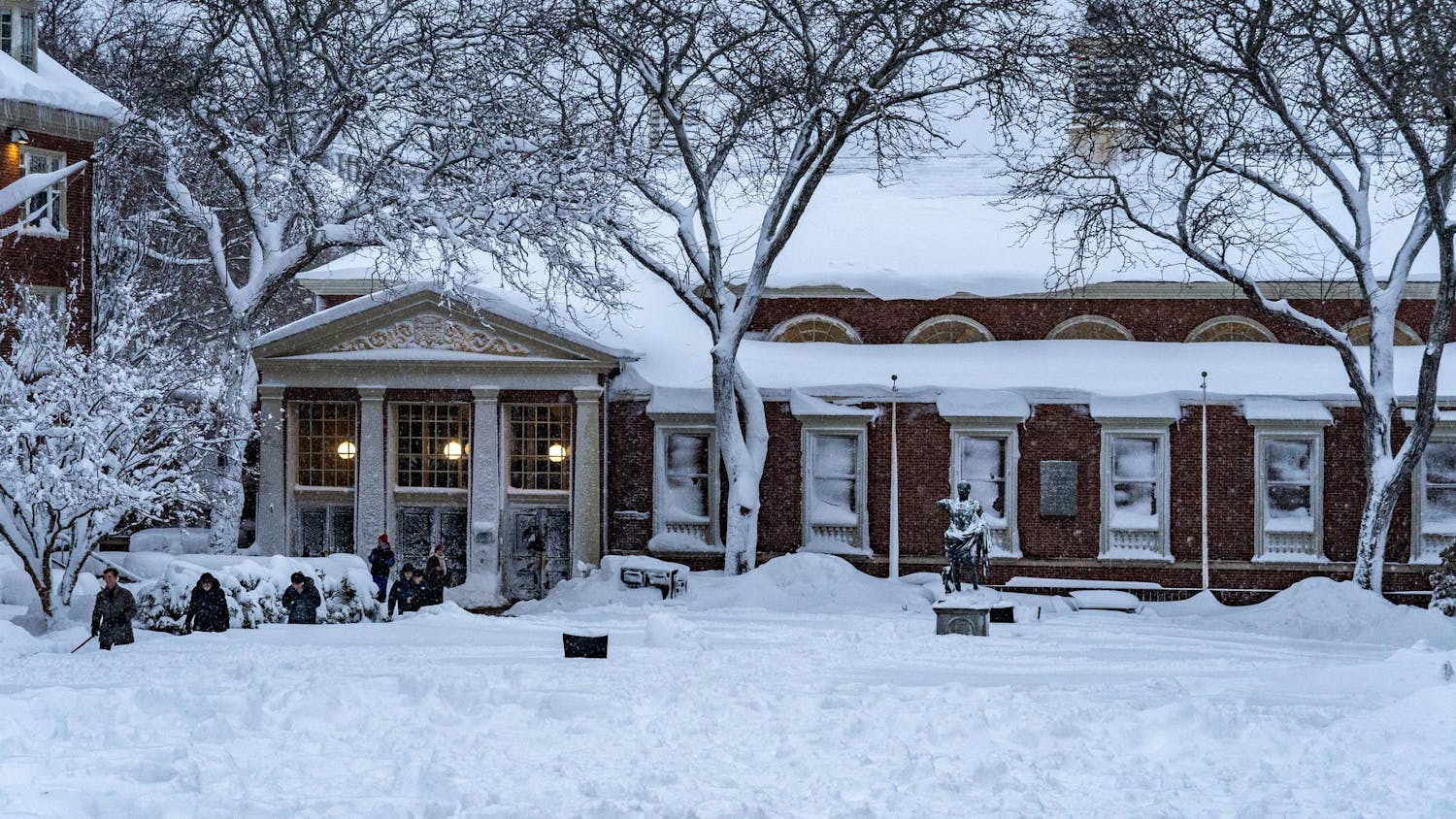The Infectious Disease Society, a student group focused on the combination of global public health and clinical medicine, held a soft launch for a new magazine on Feb. 28 in The Underground of the Stephen Robert ’62 Campus Center. The club hopes to release the publication online during National Public Health Week from April 4 to 10.
The club’s executive board decided to launch the magazine as a way to provide more opportunities for club members to engage with IDS beyond monthly meetings, during which students can present on various topics and papers within public health, said IDS Founder Tania Sawaya ’22.
At the soft launch, the IDS E-Board paired up with small groups of prospective club members to get to know them and talk about individual interests.
“It was just cool to meet the diverse community at Brown and to see where everyone’s interests lie,” IDS E-Board member Max Ulibarri ’23 said.
“There is a huge emphasis in the field of infectious diseases on … HIV, tuberculosis, malaria” and, more recently, COVID-19, prospective writer Afnan Nuruzzaman ’24 said. “I’m hoping that a magazine like this might be able to educate Brown students more about infectious diseases — not just the three or four big ones but the other ones that may be a threat too,” he added.
The club is looking to cover a wide range of topics in its magazine, including politics and health and health disparities and disease spotlights, according to Ulibarri.
The magazine is “not just all heavy academia driven,” Ulibarri said. “Rather, it's more focused on the stories of public health.”
Ulibarri added that he is hoping to write articles about healthcare in the United States and the health impacts of the Build Back Better Act, President Biden’s proposed legislative social spending package.
Nuruzzaman, who is interested in politics and aspires to be an infectious disease researcher or a physician-scientist, said he hopes to write articles focused on the intersection between public health and politics.
The magazine will also include creative works such as poetry, fiction and artwork, according to Sawaya.
“Even if you’re not pre-health, (public health) is such a universal experience,” Sawaya said. “I couldn’t imagine the magazine without an avenue to express your own story or a story that you’ve heard.”
“It kind of harkens back to the idea that we’re focusing on the stories of public health, rather than just cold, hard data-driven science,” she added. “So we want to include not just fact after fact, but bring in some other perspectives.”
IDS, which has been active on campus for three semesters, offers an opportunity to “engage with the actual science and literature currently happening in the field outside of the classroom, … have roundtable discussions and learn from other students,” Sawaya said.
The club has two tracks with different focuses: a pre-clinical track and a public health and social justice track.
The pre-clinical track offers students the opportunity to attend monthly meetings to discuss primary research in the field. The public health and social justice track seeks to be more action-oriented, with meetings centering around discussion of the societal impacts of infectious diseases and ways to alleviate them, according to Sawaya.
The public health track also organizes campaigns and events, such as an upcoming Chipotle fundraiser to buy and donate mosquito nets — the most successful intervention for curbing the risk of malaria and other mosquito-borne illnesses, Ulibarri said.
“When I first came to Brown, I saw a gross lack (of) global health discussions,” Sawaya said. “Had I founded IDS before the pandemic hit, I don't think we would have seen as much engagement with the club,” she added.
The club is also looking to involve members in a research project this semester examining vaccine hesitancy trends, Ulibarri said. The project is similar to “research projects that get done in the real world in academia,” and will examine vaccine rates for the flu, COVID-19 and potentially other diseases to “elucidate information about what gives rise to vaccine hesitancy,” he added.
Infectious disease epidemiology is “such a multidisciplinary field,” Sawaya said. “I want to make sure that people who aren’t pre-health or pre-med are able to engage with the topic because there's so much to work on. This is primary care and (it) affects everyone — that's kind of the great equalizer.”
Haley Sandlow is a contributing editor covering science and research. She is a junior from Chicago, Illinois studying English and French.





